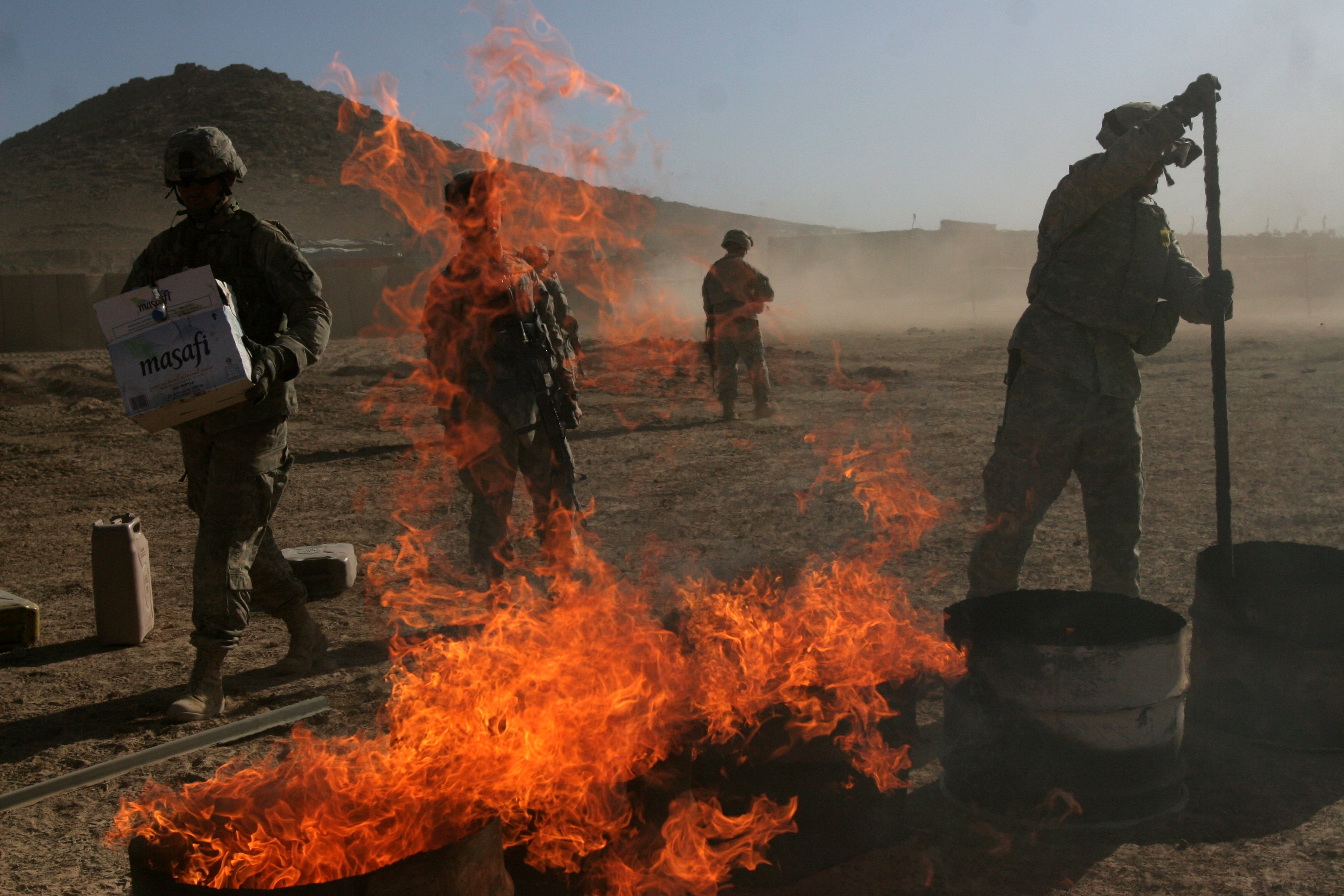Troops exposed to toxic chemicals during their time in service wait on average more than three decades for full veterans benefits related to those injuries, according to a new study released by advocates on Wednesday.
Officials from Disabled American Veterans and the Military Officers Association of America called the current toxic exposure system “flawed” and said their findings point to a critical need to overhaul how federal agencies identify, research and respond to the hazardous conditions faced by troops, for both vets already separated and those currently serving.
“Scientific, policy, political and fiscal challenges have too often delayed the establishment of [disability] presumptives, effectively denying justice for some veterans, their families and survivors,” report authors wrote.
“While there have been some significant leaps forward, such as the enactment of the Agent Orange Act of 1991 and the PACT Act of 2022, significant obstacles have left — and will continue to leave — too many toxic-exposed veterans waiting for the health care and benefits they have earned.”
RELATED

The study lists 16 military toxic exposure events eventually recognized with presumptive benefits status for veterans. That status is key, because it recognizes all veterans who served in a certain area or certain time frame to skip complicated documentation of their illnesses, and instead concedes that their medical issues were likely caused by military service.
The list includes problems like exposure to the chemical defoliant Agent Orange during the Vietnam War, toxic burn pit smoke during the conflicts in Iraq and Afghanistan, poisoned water at Camp Lejeune in from the 1950s to 1980s, and radioactive materials at various sites throughout the Cold War.
In some cases, the link between the toxins and veterans health problems was known within a few years, researchers found. But getting benefits fully sorted out took much longer.
“A veteran who served in Vietnam in 1962 and later developed hypertension had to wait 60 years from first exposure for the government to concede presumptive service connection,” the report stated. “Toxic-exposed veterans are waiting too long for the establishment of presumptives to ease their path to the benefits and health care they have earned.”
The groups are advocating for a clearer process of identifying military toxins, researching their effects and implementing care and benefits for veterans exposed to the chemicals.
“We’re already getting more accurate information about service members and their specific exposures,” said Cory Titus, MOAA’s director of government relations for veteran benefits. “Codifying some of those best practices that we are seeing will help ensure that we have a true system to take care of veterans into the future.”
Advocates briefed VA leaders and members of Congress on their findings ahead of Wednesday’s report release. Peter Dickinson, senior executive advisor for DAV, said advocates hope to turn the report into legislation early next year.
“[The current White House] has run very hard and fast on part of this issue under their control,” he said. “But there is a historical waxing and waning of attention focused on veterans. We need to set up a system where … we acknowledge problems early on, rather than saying we’re not going to acknowledge it until we’re ready to pay the bill.”
The proposed reforms include a clear framework with specific timelines for when VA officials must publicly acknowledge environmental hazard incidents, inform veterans about possible health impacts and begin the process of establishing presumptive rules surrounding those conditions.
Report authors also noted that “expanding scientific understanding of toxic exposures and environmental hazards is essential to support the VA’s efforts to provide timely, comprehensive benefits and health care to exposed veterans.”
The full report is available on the DAV and MOAA websites.
Leo covers Congress, Veterans Affairs and the White House for Military Times. He has covered Washington, D.C. since 2004, focusing on military personnel and veterans policies. His work has earned numerous honors, including a 2009 Polk award, a 2010 National Headliner Award, the IAVA Leadership in Journalism award and the VFW News Media award.




